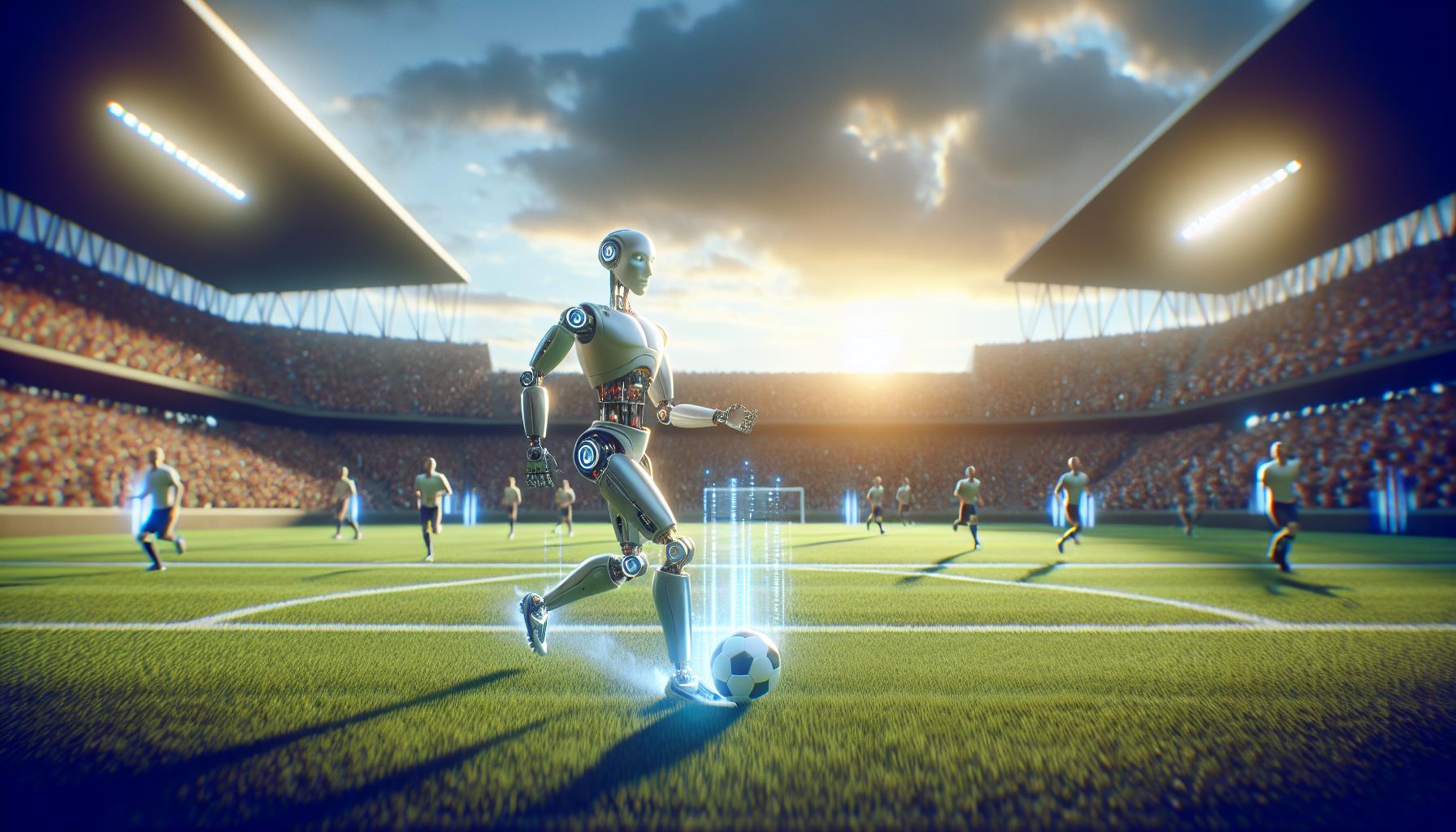The world of football is undergoing a seismic shift, driven by the rapid adoption of artificial intelligence (AI) technologies. Traditional methods of coaching, scouting, and game analysis are being replaced by data-driven approaches that leverage AI to optimize performance and decision-making. In the Bundesliga, Germany’s premier football league, clubs are increasingly turning to AI to gain a competitive edge. From analyzing player performance metrics to predicting opponents’ tactics, AI is reshaping the way teams prepare for and execute matches.
AI-powered tools such as machine learning algorithms and computer vision systems are now integral to modern football. These technologies enable clubs to process vast amounts of data in real-time, providing insights that were previously unattainable. For instance, wearable devices equipped with sensors track players’ movements, stamina, and even mental focus during training and matches. This data is then analyzed to create personalized training regimens and recovery plans, ensuring players perform at their peak while minimizing the risk of injury.
Impact on Bundesliga Clubs and Fans
The integration of AI into football is not without its challenges. For Bundesliga clubs, the shift towards technology-driven strategies requires significant investment in infrastructure and expertise. Smaller clubs with limited budgets may struggle to keep up, potentially widening the gap between the league’s top teams and the rest. However, proponents argue that AI democratizes access to high-quality analysis, enabling even underdog teams to punch above their weight by making smarter decisions on and off the pitch.
For fans, the use of AI offers a mixed bag of opportunities and concerns. On one hand, AI enhances the viewing experience by providing detailed statistics, predictive analytics, and even augmented reality features during broadcasts. On the other hand, some purists worry that the increasing reliance on technology detracts from the human element of the sport. The debate over whether AI diminishes the unpredictability and emotional connection that make football so beloved continues to rage among supporters and pundits alike.
Future Implications for Football
As AI continues to evolve, its applications in football are expected to expand further. Advanced AI systems could soon be used to simulate matches, allowing coaches to test strategies in virtual environments before implementing them on the field. Additionally, AI could play a role in talent scouting by identifying promising players based on data patterns, reducing the reliance on traditional scouting networks. These developments promise to make football more efficient and competitive, but they also raise ethical questions about the role of technology in sports.
Regulatory bodies like FIFA and UEFA may need to establish guidelines to ensure that AI is used responsibly and does not compromise the integrity of the game. Issues such as data privacy, algorithmic bias, and the potential for AI-driven match-fixing must be addressed proactively. As the Bundesliga and other leagues navigate this technological revolution, striking a balance between innovation and tradition will be crucial to preserving the essence of football.
Summary
- AI is transforming football by enabling data-driven decision-making and performance optimization.
- Bundesliga clubs are leveraging AI for player analysis, tactical planning, and injury prevention.
- Fans benefit from enhanced viewing experiences, but concerns about the sport’s human element persist.
- Future applications of AI in football include virtual simulations and data-driven talent scouting.
- Regulatory frameworks are needed to address ethical and integrity-related challenges posed by AI.
